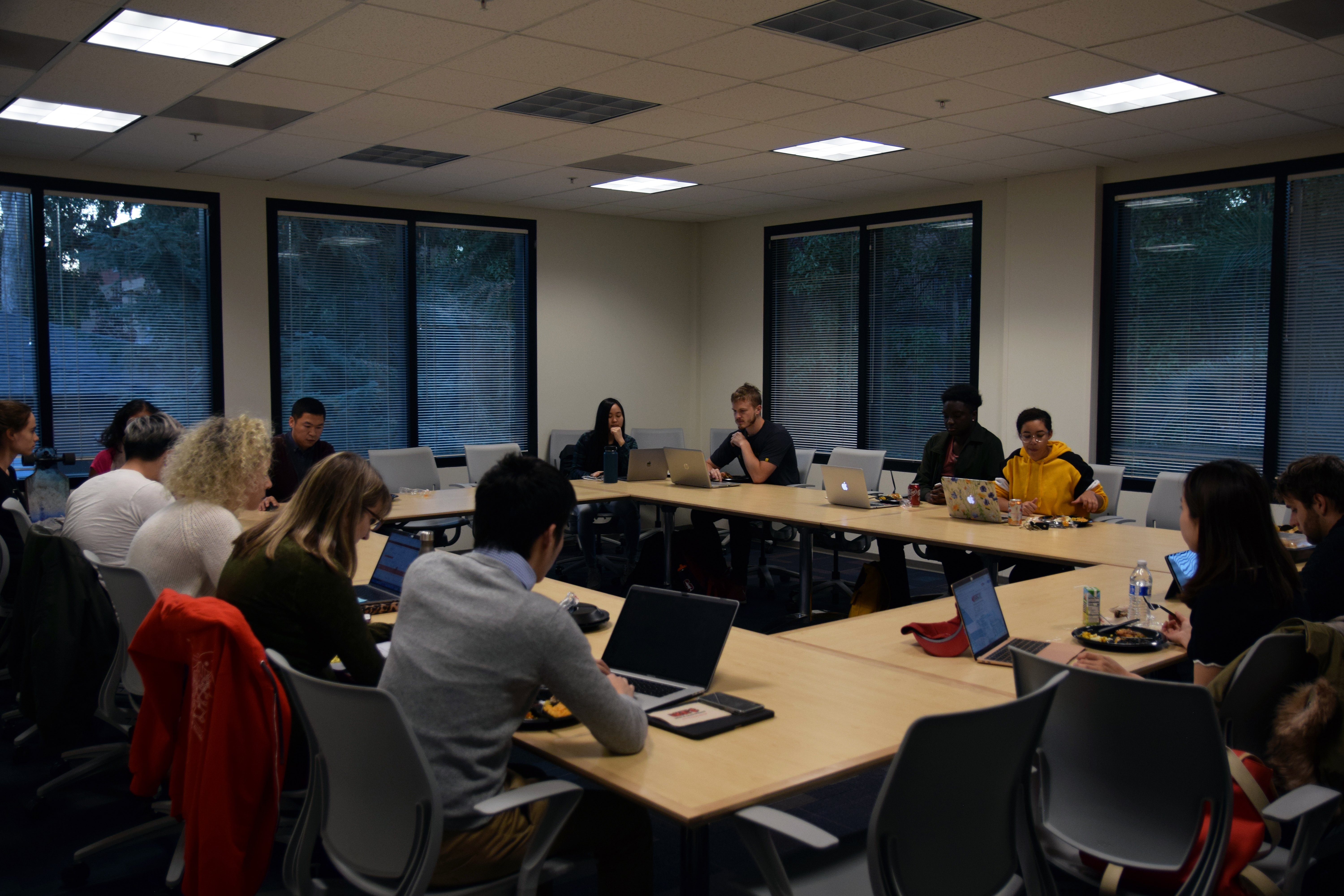In the wake of another election cycle with relatively few candidates, current members of the Graduate Student Council (GSB) pointed to heavy workloads, the council’s bureaucratic processes and the insularity of graduate programs as the foremost reason prospective candidates may decide not to run.
18 candidates filed for a total of 15 positions on the GSC in the most recent election cycle. Last year, two council members ran unopposed and three seats were awarded by write-in votes.
Fourth-year mechanical engineering Ph.D. student and current council co-chair Yiqing Ding and his co-councillors — fourth-year J.D.-M.A. candidate and outgoing council member Julia Neusner, and GSC Social Chair and second-year computer science master’s student Adam Keppler — all described heavy workloads as the foremost reason graduate students may be hesitant to get involved in their student government.
“You could say that it’s just a ‘too many options being available and not enough time’ kind of issue,” Keppler said.
“For undergraduates, the ASSU is just another part of their college life,” Ding said. “For grad students, a lot of Ph.D. students, we have such a heavy workload already it’s hard to take on something that’s just as important as your research or your dissertation.”
Ding said his decision to run for reelection required serious deliberation with his advisor as to whether he was taking on too much.
Graduate students may also be more inclined to participate in more specialized groups within their own schools, Neusner said, such as the Stanford Law Association, a student organization with Stanford Law School (SLS) that works directly with SLS administrators.
“I think it comes down to the decentralized nature of the university,” Neusner wrote in an email to The Daily.
“Graduate students need to feel like GSC is relevant to them,” she said, noting that high-priority issues such as research funding and stipends are decided by University divisions.
Ding felt that the council’s limited authority may be hindering a greater degree of graduate student engagement. The GSC can recommend policy changes by way of passing resolutions, but they lack final decision-making ability, Ding said.
“Sometimes we feel that we’re powerless,” he said, since the University may decide not to act in accordance with the GSC’s recommendations.
As an engineer and international student, Ding said he first wanted to get involved with the GSC as he felt well-equipped to represent two diverse student groups.
“There’s a natural distance between international students and the university itself,” he said, adding that many international students may be less inclined to voice their needs and concerns to University administrators.
Ding described the GSC as a “black box,” adding that graduate students might also be deterred from running by the complex nature of the ASSU’s processes.
Keppler pointed to the creation of social commissioners, unelected members of the GSC who help coordinate inter-school social events, as a means for graduate students to participate in their student government without taking on significant time commitments.
“I think that as we try to offer more like these kinds of opportunities, that would be a very good way to get more people to engage with the GSC and sort of be able to load balance as well,” he said.
Neusner felt that completion of the Escondido Village Graduate Residences and subsequent influx of graduate students living on-campus may also increase the GSC’s visibility in the coming year.
“The graduate student body will be more centralized and accessible than ever, so I think GSC has the opportunity to make a real impact,” she wrote.
Neusner, who will graduate this spring, felt that the GSC was poised to take on an especially active role in the coming school year given the economic uncertainty brought on by the COVID-19 pandemic.
“Now more than ever, graduate students need representatives to advocate for them,” she wrote.
Contact Grace Carroll at gac23 ‘at’ stanford.edu.
